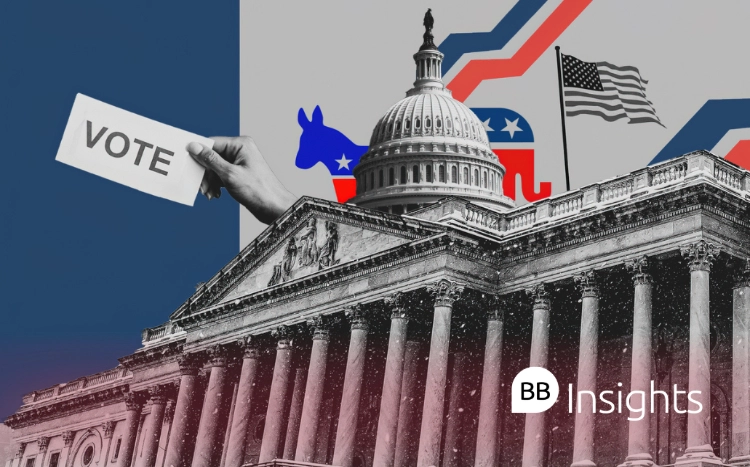Barack Obama, the 44th man to grace the Oval Office, and the first black President of the United States. He’s skilled in the art of oration and global leadership, has the ability to build a team, present ideas fluently, and make quick decisions in a crisis; the kind of skills candidates expect to learn during an MBA degree.
Here are the leadership lessons you can learn from Barack Obama.
1. Leading through a crisis
When President Obama took office, the world was in the middle of a crisis. Lehman Brothers had collapsed, and an international financial crisis had been sparked.
Obama quickly signed into law the American Recovery and Reinvestment Act, a $831 billion recovery package. More than a decade of growth and job creation—the longest in American history—followed.
Obama showed that, in a crisis, fast and decisive policy action is needed.
He demonstrated his ability to lead under pressure even after his presidency during the coronavirus pandemic.
He used his social media platforms as well as his influence in government to publicly support health experts, advocate for mask-wearing, vaccination, and science-based approaches to tackle the virus, and warned against the spread of misinformation: "Speak the truth. Speak it clearly. Speak it with compassion. Speak it with empathy for what folks are going through," Obama said at virtual convening of the Covid Local Response Initiative.
2. Being culturally sensitive
To win the presidency Obama had to pull together a coalition of voters from across America’s cultural divide.
Pew Research Center showed that although Republican John McCain in 2008 won 55% to Obama’s 43% of the white vote, President Obama dominated when it came to the black vote (95%), Latino vote (67%), and the Asian vote (62%).
Without the diversity of support there’s no way Obama would have won the race for the White House. In the same way he found success by building a diverse support base and team, one of the leadership lessons you learn in the business school classroom is to work together and lead teams of people from all over the world.
In recent years, Obama’s public comments on racial justice, particularly in response to the killing of George Floyd and the rise of the Black Lives Matter movement, highlighted his commitment to cultural sensitivity and justice. He encouraged peaceful protest and legislative reform while emphasizing unity and understanding.
During an online roundtable in 2020, Obama said: “For those who have been talking about protest, just remember that this country was founded on protest—it is called the American Revolution."
3. Charisma
When Ben Tiggelaar, visiting professor at IE Business School and best-selling author, sat down to interview Barack Obama, the former president of the United States told him the secret to his skills as an orator is simple: tell your own story.
"The tricks of charisma, and speaking with a certain style and tone, all that stuff is overrated," he said. "Here’s the thing that any effective communication requires: That you believe what you say. That you have taken the time to think through what it is that’s important, and you say it as truthfully and as clearly as you can."
"So much of our communications today is sound bites, just disposable. We say whatever we think the immediate moment requires. What is expedient. Opposed to really digging in and thinking: Is that what I think?"
Obama’s 2020 memoir, A Promised Land, became a bestseller partly due to his compelling storytelling. Many have commended his ability to create vivid imagery that sticks in people's minds.
Read: US Election: H-1B Visas, OPT Limitations And Other Policies Affecting B-School Applicants
4. A positive attitude
Does anyone remember Obama’s campaign slogan?
‘Yes We Can’. Three words that told a story of optimism and one of belief. Sometimes the trick to a successful campaign is confidence and positivity. With their choice of slogan for the 2008 US election, Obama’s team hit the nail on the leadership head.
This is further demonstrated by the Obama Foundation's Leaders Program which started in Africa and now has extended across the world. This six-month program is for emerging leaders working in government, civil society, and the private sector who have demonstrated a commitment to advancing the common good.
5. Motivating others and remaining calm under pressure
You can imagine sitting at the helm of the United States in the Oval Office is a feet up on the desk, walk in the park kind of job, right? Try again.
The office of the presidency of the United States demands respect, professionalism, and non-stop hard work for four years. Stressful, to say the least.
But every time he spoke during his two terms, or every time you hear anyone reflect upon their time under his leadership, one thing is clear: Obama kept his teams motivated and calm under pressure. Any aspiring leaders need to take that leaf out of the former president’s book.
Recently Obama's motivation and calmness has been particularly evident in his advocacy for climate action, as seen in his addresses at international events such as the COP26 climate summit.
His support for Harris-Walz shows his ability to motivate extends beyond his own campaigns: “We know this election is going to be tight, it’s going to be tight because a lot of Americans are still struggling,” Obama said in a Wisconsin rally. Harris, he said, “knows what it’s like to scrap and to work hard — to see her mom worry about the bills, so does Tim. So if you elect them, they will be focused on your problems.”
6. Listening
During his presidency Obama read 10 letters from members of the public every day. It was his way of ensuring he didn’t sway from the goal at hand: to serve the American people.
At a time when government leaders can often seem detached from the people they serve, this is a gentle reminder that it doesn’t take much to connect.
If you find yourself in a position of leadership after business school you should take on this simple leadership lesson: From employees and the environment, to the society you serve at large, take the time to listen.
Read: What Makes Celebrity Endorsements Effective?
©salke media / iStock
7. Being a decent person
One of the qualities of a good leader and something president Obama has in abundance is decency. Though not perfect—no president is—Obama showcased throughout his eight years an amount of grace and likeability that leave no doubt over the strength of his personal character.
If people like you, they’ll want to work for you, and if people want to work for you, you’re halfway there as a leader. Along with the traditional DNA of a leader—strong intelligence quotient (IQ) and emotional intelligence (EQ)—a high decency quotient (DQ) completes, according to Bill Boulding, dean of Duke’s Fuqua School of Business, a successful leader’s ‘triple-threat leadership capability’.
The big question is whether these skills can be learned and, if so, whether they can be learned at business school. MBA programs are meant to be the training grounds for future leaders, and so any program worth its weight in gold will take leadership lessons from the best.
The MBA curriculum teaches you the art of making sharp business presentations, working in diverse teams, and avoiding destructive scenarios like groupthink. You learn to work closely with people and lead together towards a common goal.
You can expect to learn a lot about leadership at business school, not just through core subjects but through the simple act of working and living with people from different countries and backgrounds.
That’s not to say you and all your classmates will go on to become presidential material. But with the right professorial guidance and hard work, there’s nothing to say you can’t emulate the 44th president of the United States wherever you work.
This article was originally published in 2009 and written by Kirti Dhingra. The article was updated October 2024 with new information and quotes.
The main image for this article is used under this license.




